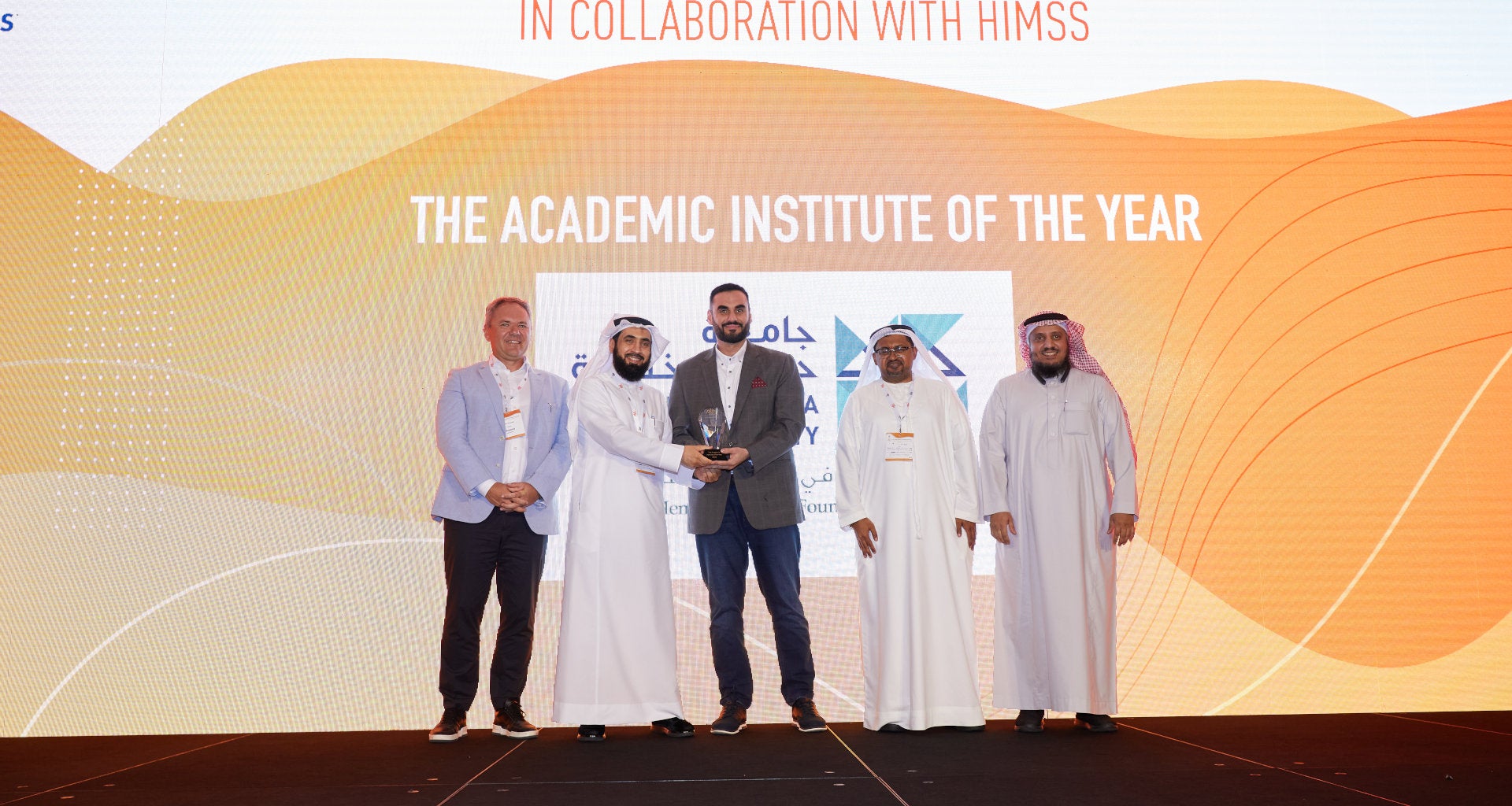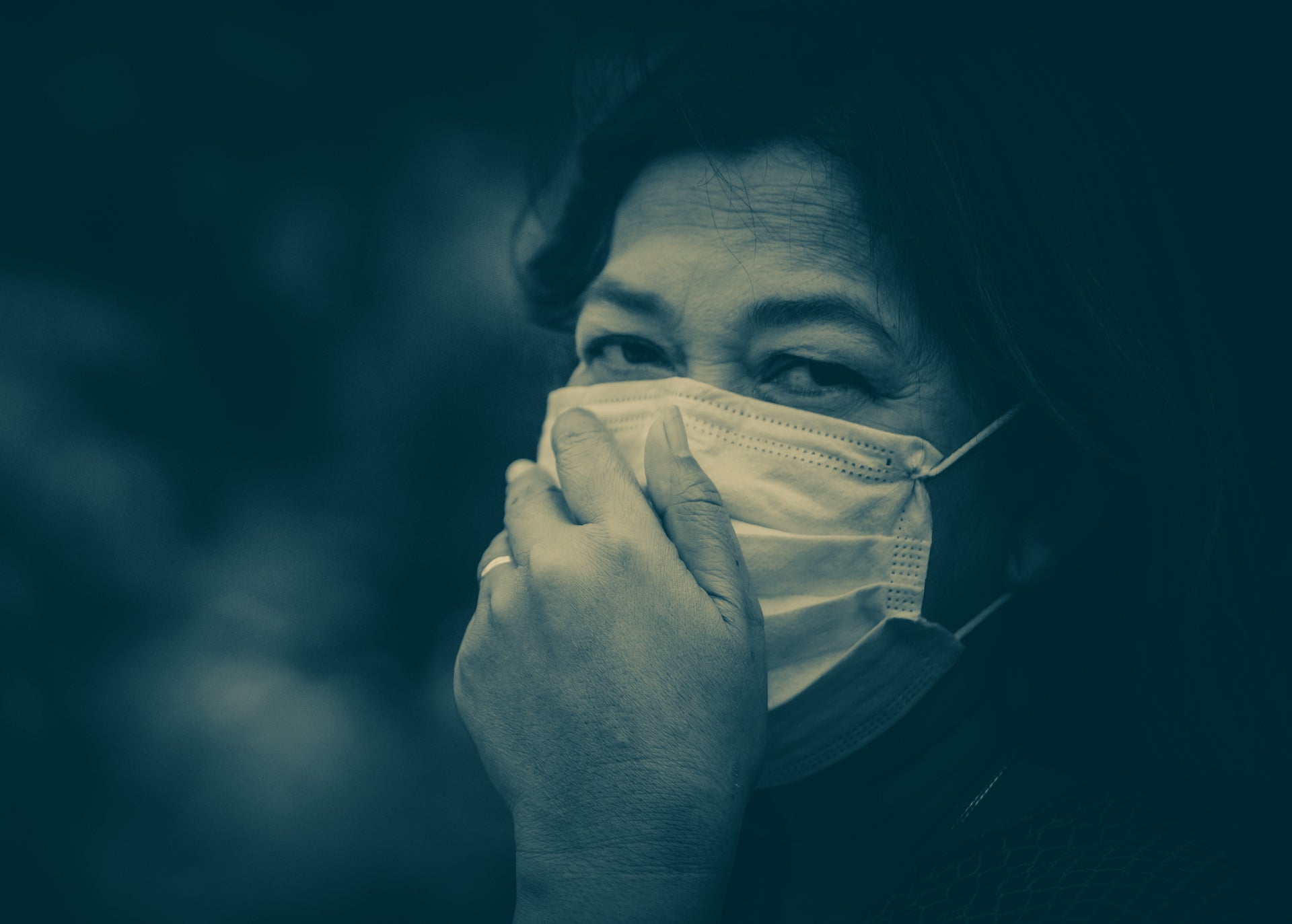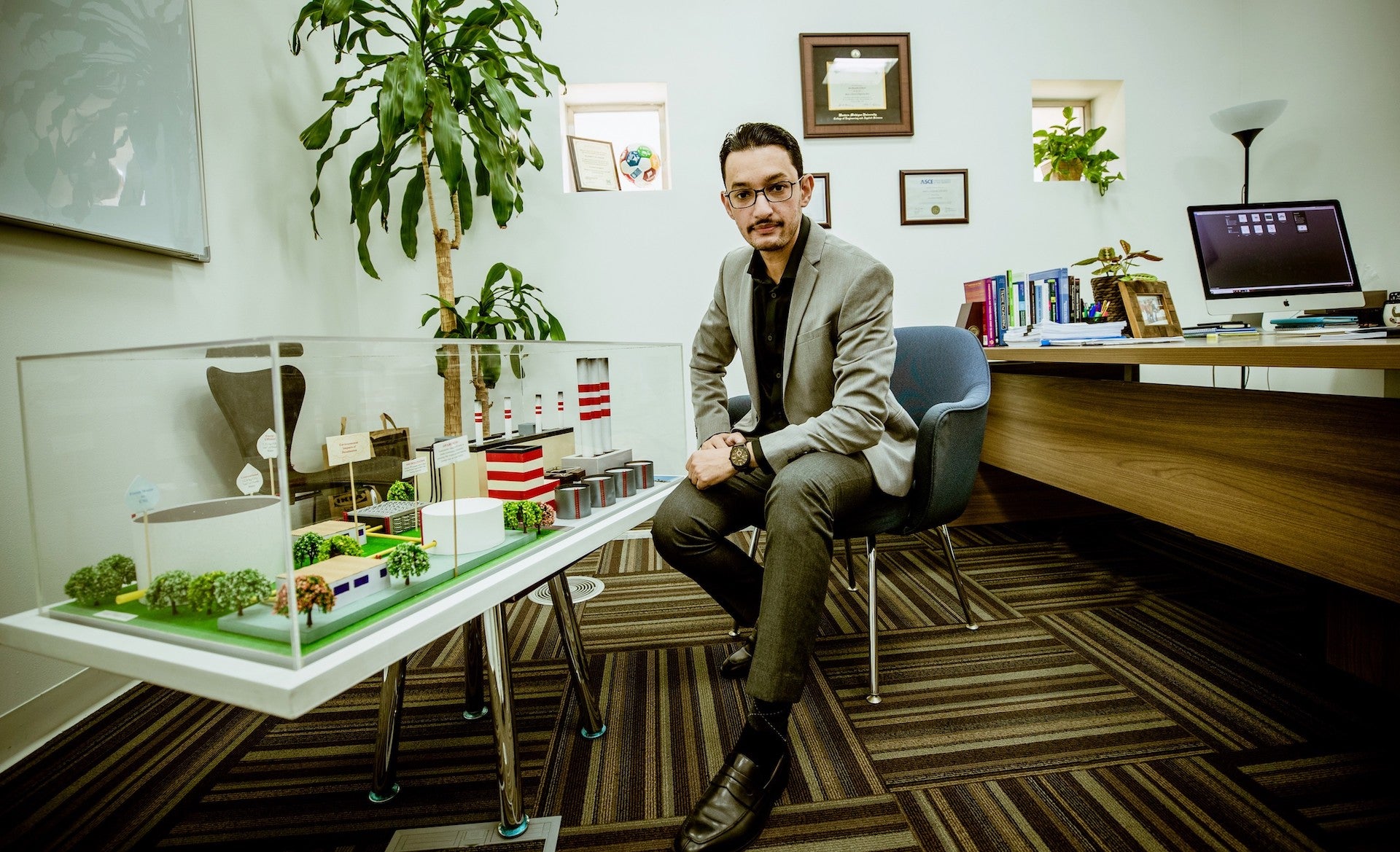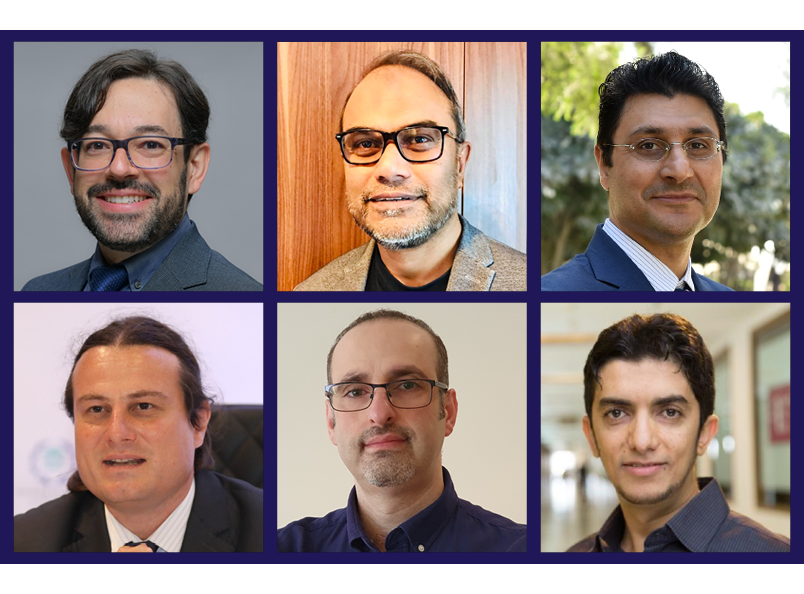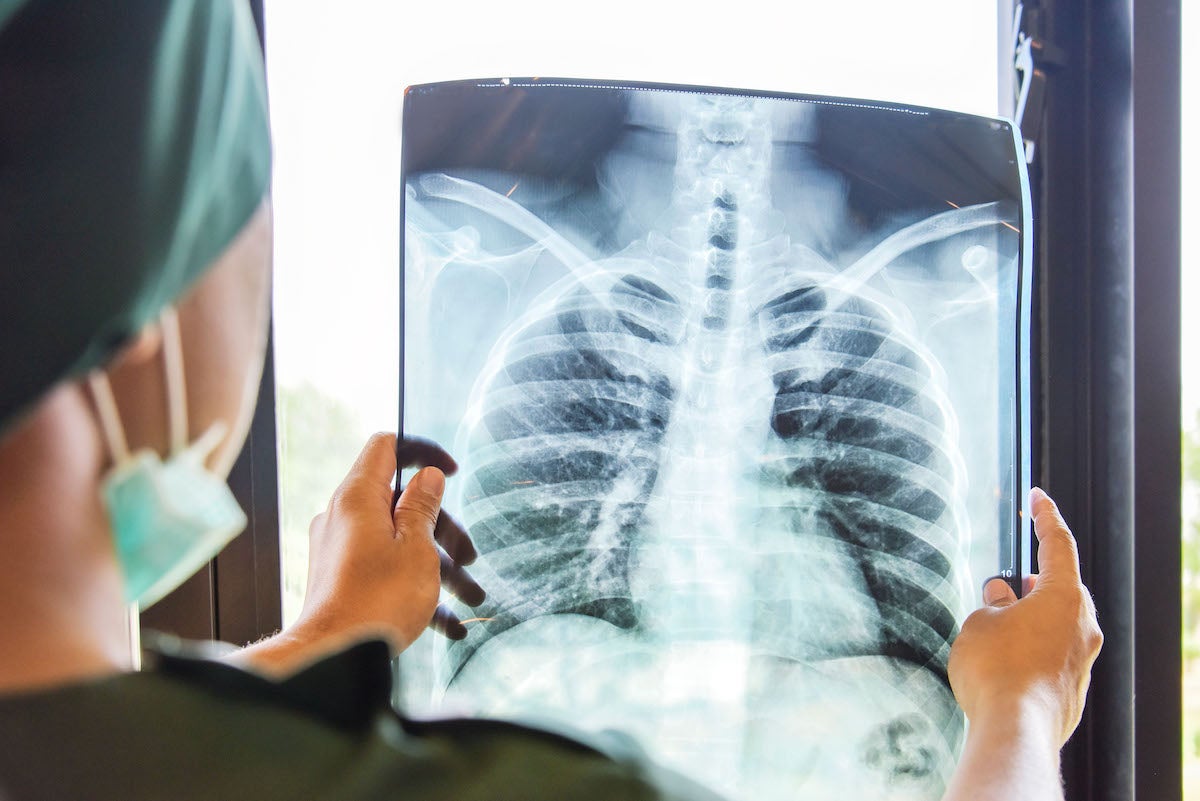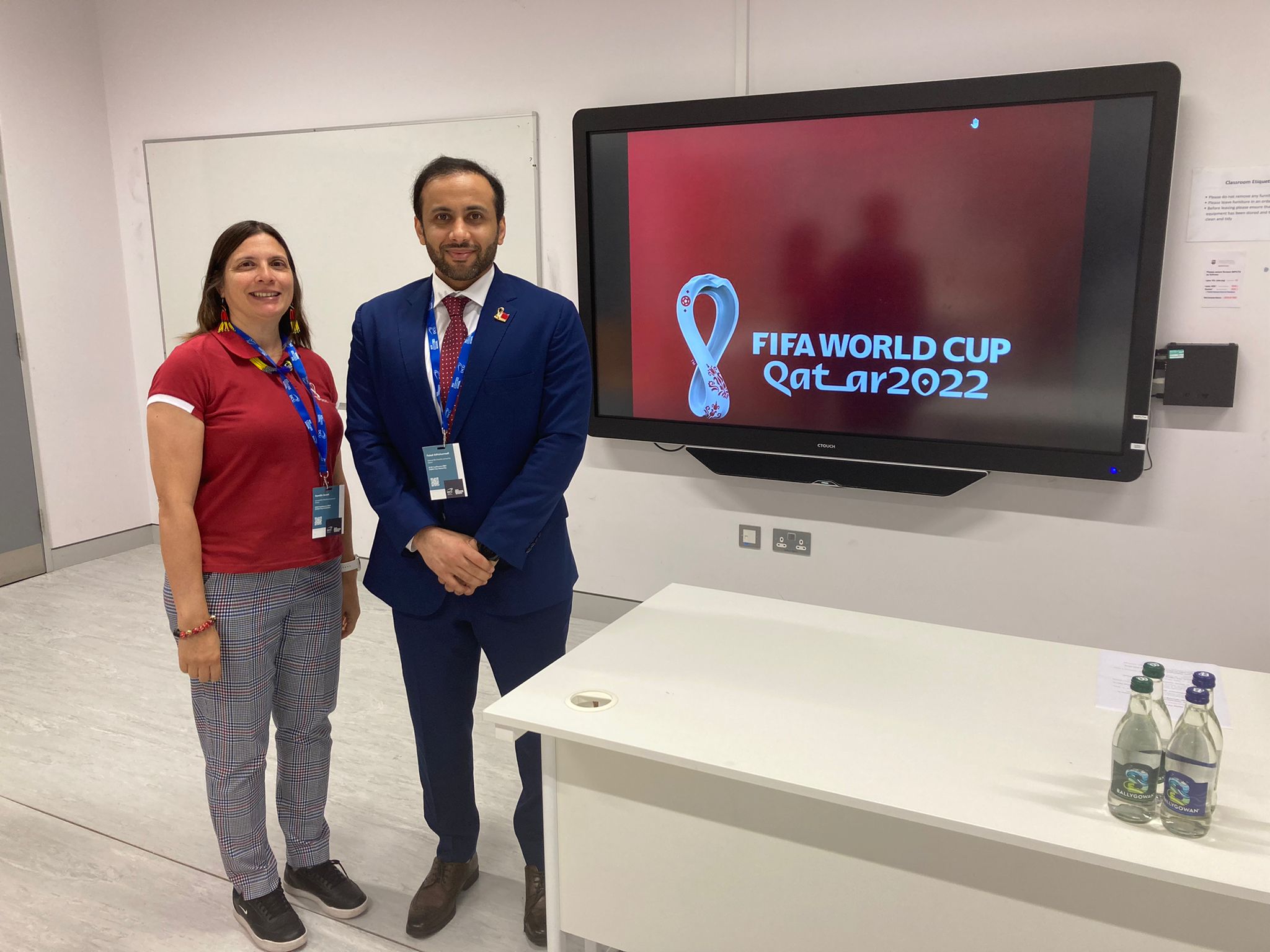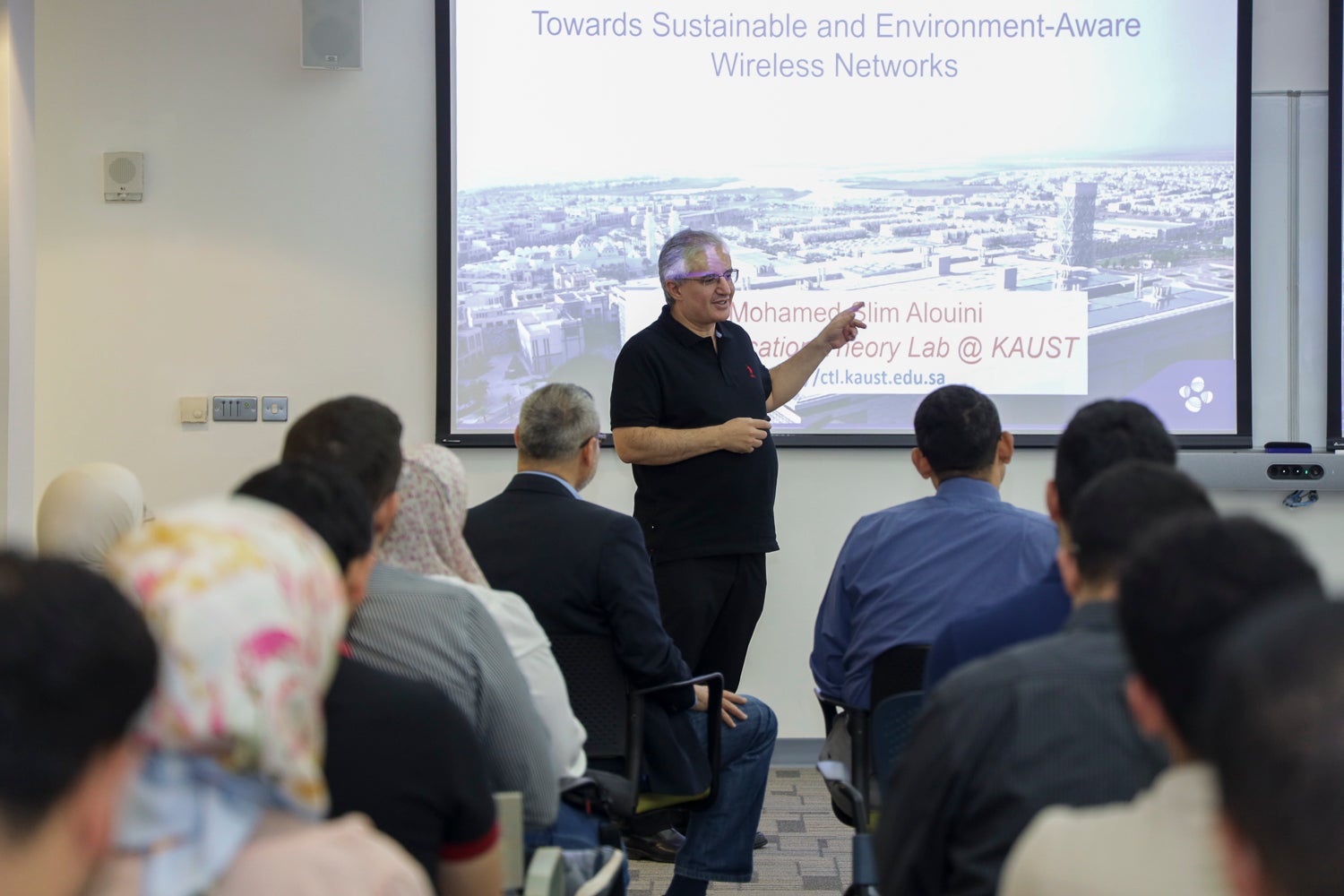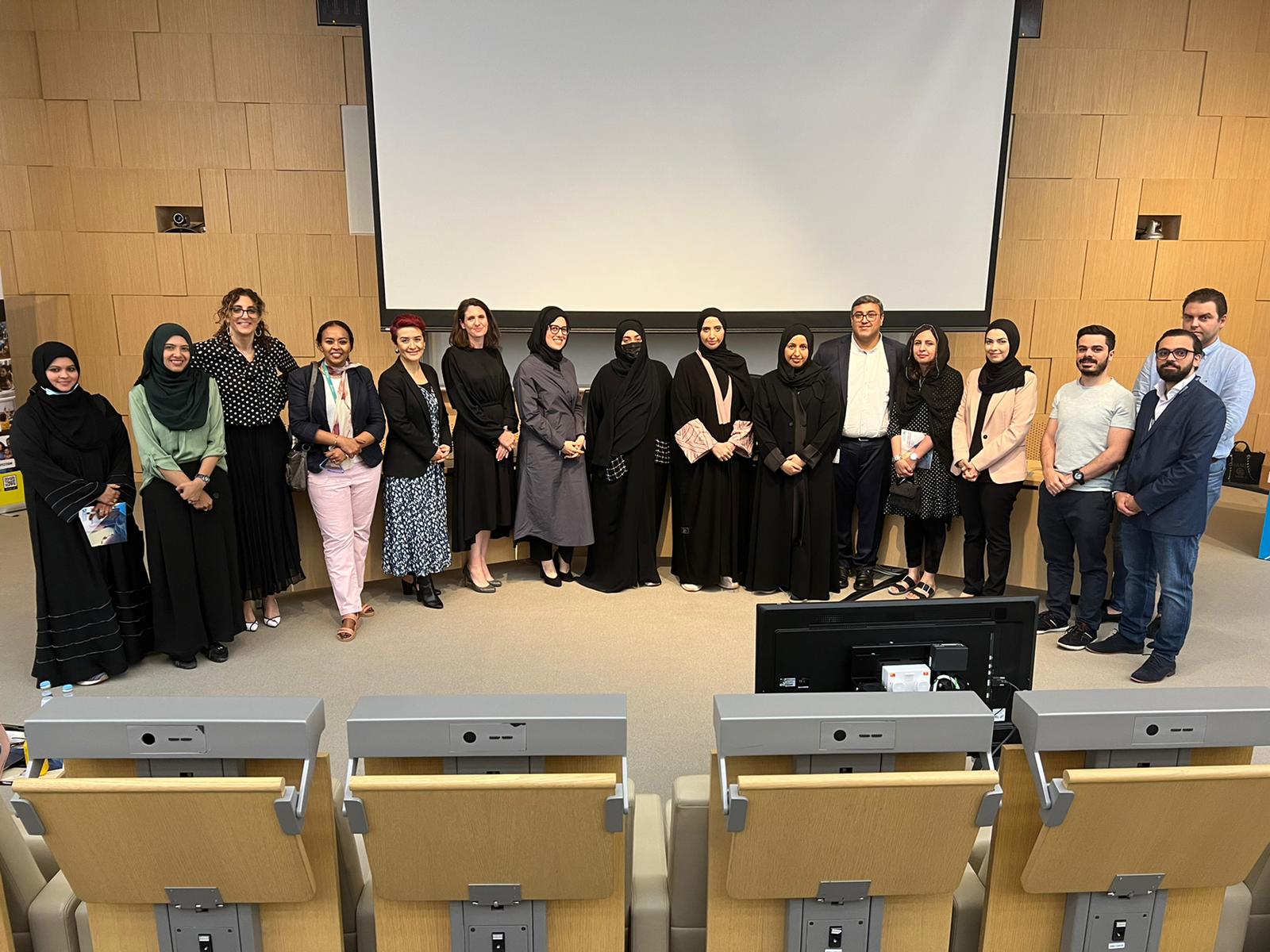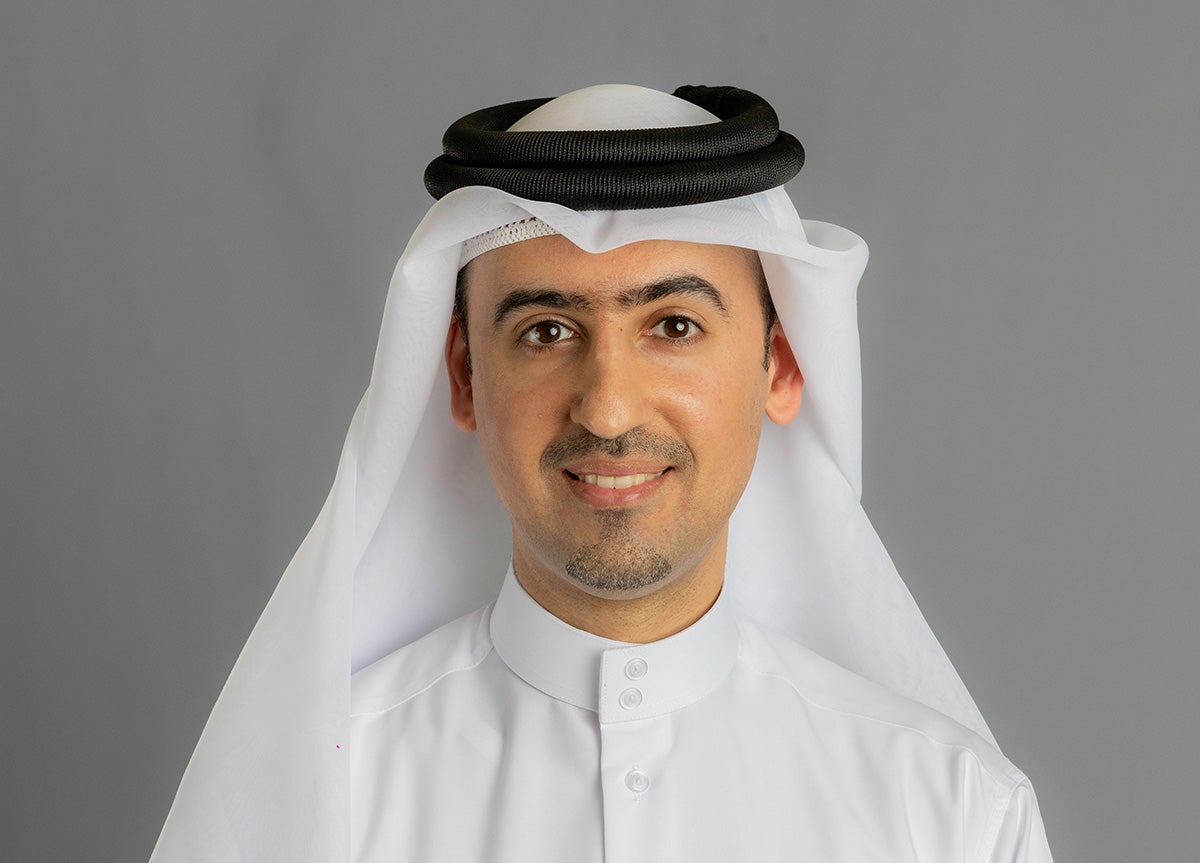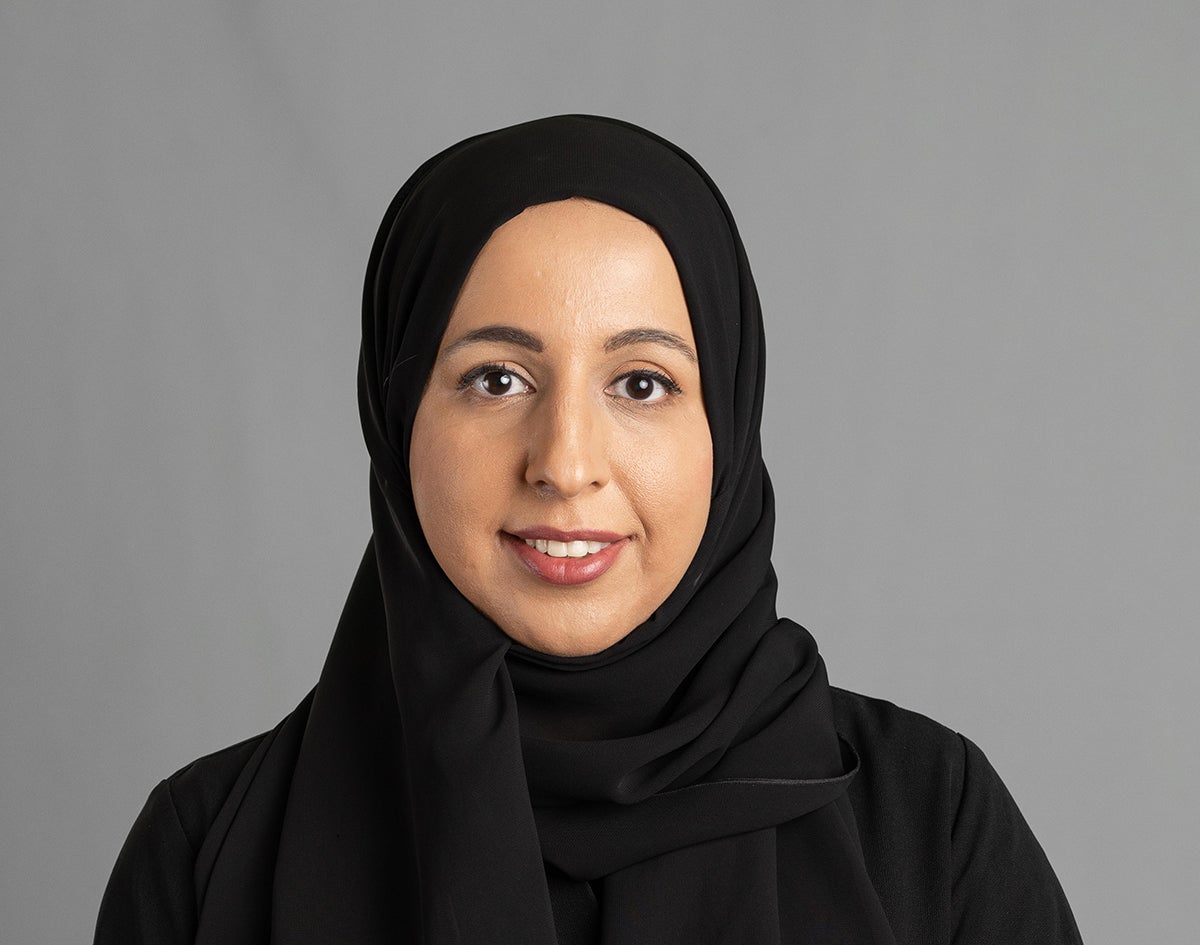
Are Digital Health Tools Front Runners in the Diabetes Fight?
An interview with Dr. Mowafa Househ and Dr. Alaa Abd-Alrazaq
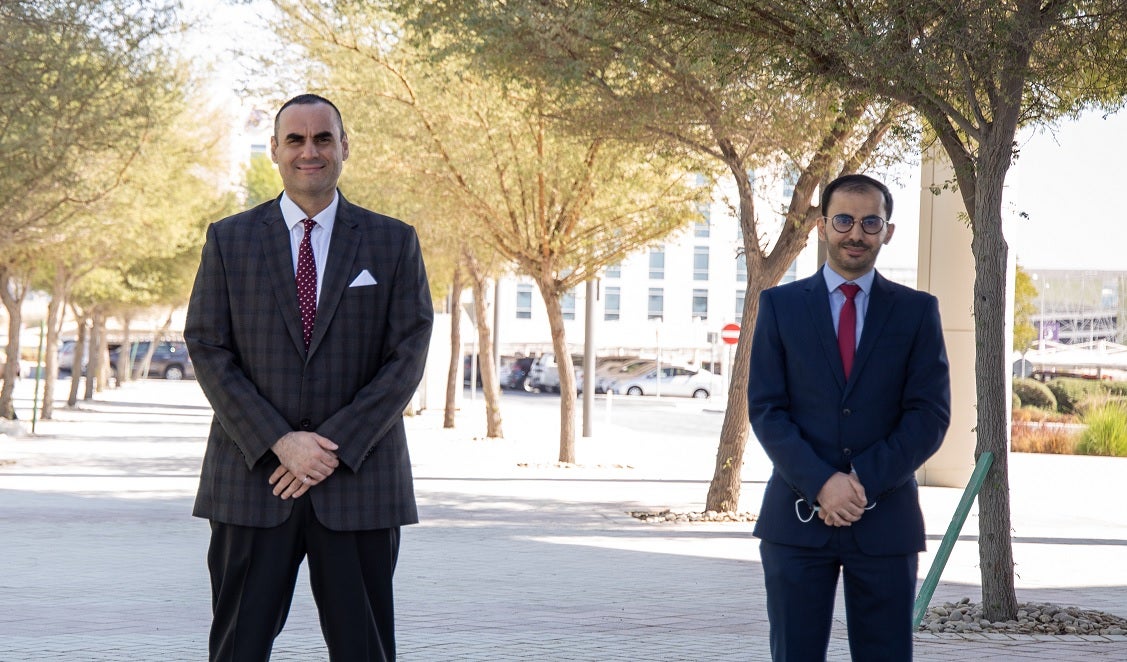
In line with Diabetes Month, HBKU’s College of Science and Engineering experts examine the influence of digital health tools in countering the ill-effects of diabetes
In your view, why is the integration of technology and mobile applications important for the management of diabetes and accessing care? What technologies particularly stand out in this area?
Dr. Househ: I think that, today, we have moved beyond the single-use of mobile applications and into wearable technologies integrated with mobile applications - and powered by artificial intelligence - to provide immediate feedback to patients and providers. The goal of these technologies is to amplify the health value to the patients and help them make simple (yet important) changes to their behaviors that can assist in managing their blood glucose levels, reduce or eliminate diabetes complications, and ultimately improve the overall physical and mental quality of life.
The technologies that particularly show promise in this area include artificial pancreases, which produce the insulin that is required to help regulate blood glucose levels. The use of artificial pancreases could be a revolutionary discovery for diabetic care. Although it is new today, the idea of the artificial pancreas was first developed in the 1970s with the biostator system, which is a precursor to today's more nimble and mobile type of artificial pancreas.
What challenges are associated with these technologies? And what are the benefits?
Dr. Househ: As is the case with any emerging technologies, privacy questions play a central role in their development and adoption rates in the future. Our most recent study around mobile-application privacy concerns highlights an alarming 60 percent of analyzed diabetes applications soliciting potentially dangerous permissions, which pose a significant risk to users' data privacy. In addition, 28.4 percent of analyzed applications did not provide a website for their privacy policy.
In addition to privacy concerns, we are also confronted with questions around what type of education may be most beneficial and needed for patients. How can we educate patients - through their primary healthcare provider or the ministry - on identifying the most trustworthy and effective applications to use? We need to be able to contextualize and provide information in local languages, as well as the languages that are most prominent and popular in each country. To use an example, Qatar’s leading COVID-19, application, Ehteraz, has a hotline that can be accessed in 9 common languages, ensuring equal access to all.
Also, the question of who will pay for these technologies continues to be a major issue. Many patients will not pay for them or cannot afford them. Should the onus be on local ministries to pay for these technologies? How long will they have to wait to know about their return on investment? These are very important questions that we need to address.
Finally, adherence to the use of the technologies and applications can be an issue as well. How do we integrate the information generated from applications and glucose monitoring tools within the physician’s workflow, bearing in mind that many physicians are already faced with cognitive information overload?
Dr. Abd-Alrazaq: There are also some considerations that are specific to our part of the world, such as drawing fine lines between patient and physician autonomy, as well as the methods through which we can introduce and pay for these technologies. What value do they bring to improving the quality of care and patient behavior modifications?
We need to advance our local studies and understand the role of these technologies on our patient populations in Qatar. We should not limit ourselves to the mere application of research that was developed within different populations and groups - mostly emanating from North America.
What research is being conducted in this area at the College of Science and Engineering? What are your findings so far? And are any of the findings specific to the Qatari population?
Dr. Househ: Within the College of Science and Engineering, Dr. Marwa Qaraqe’s team is developing a remote healthcare platform for diabetes care that is the first of its kind. The platform has three main pillars: (1) to conduct remote health monitoring, (2) to enable real-time food tracking with Continuous Glucose Monitoring (CGM), (3) to provide intelligent and predictive insights.
The tool is both a mobile and web-based application that allows users to 1) view their CGM data remotely and in real-time, 2) access essential people such as caregivers, parents of children with diabetes, school nurses, and medical professionals, and 3) receive better analytical insight by correlating the user’s CGM data with their diet.
With such tools, remote monitoring continues to be essential for many reasons, including decreasing the levels of social discomfort for young diabetic children at school, who must be periodically taken out of class to check their blood-glucose levels. It also provides a way for caregivers and parents to monitor the blood-glucose of their loved ones even when they are not around, and intervene when blood-glucose levels begin to drop or rise beyond a safe limit.
Dr. Abd-Alrazaq: Also within the College of Science and Engineering, Dr. Zubair Shah developed Chronopeer. The tool’s objective is to provide community-based help in the form of peer-supported groups. It also enables continuous monitoring of the lifestyle behaviors of patients.
How do you envision the future of digital health technology and its applicability?
Dr. Househ: Inevitably, there will be many technological advancements that will be used in the future management of diabetes. However, we need to find the right mix of technologies, culture and patient values to provide the best patient experiences, which will ultimately lead to an improved quality of life. This approach should encompass both physical and mental aspects.
Most of the research we - as scientists - conduct is focused on physical health, but we forget that people living with diabetes are more likely to suffer from mental-health related problems such as depression.
Also, we should not forget the elderly. These tools will be instrumental in ensuring that we include them in our scientific endeavours. The research shows clear benefits for technology and patients with dementia who forget to take their medications. Wearable technologies for diabetes can also be revolutionary for the elderly who suffer from dementia, due to their susceptibility to low blood pressures as a side effect of their medications.
Dr. Abd-Alrazaq: It is still worthwhile to note that the adoption rate among the elderly can be relatively low due to them inherently having less experience and skills in using information technology, compared to young people, who were raised within the recent technology revolution. Older people are also more likely to have difficulty learning how to use new information technologies because of the age-related decline in their physical and cognitive abilities. Compounding the problem is the fact that older people are more exposed to technophobia (computer anxiety) as their age progresses.
The study of elderly people is especially important in Qatar’s context - a country whose social composition largely consists of young professionals.
Dr. Mowafa Househ is an associate professor at the College of Science and Engineering, and Dr. Alaa Abd-Alrazaq is a postdoctoral research fellow at the college.
Related News

College of Science and Engineering Signs MoU with Hassad Food to Advance Science and Technology in Food Production
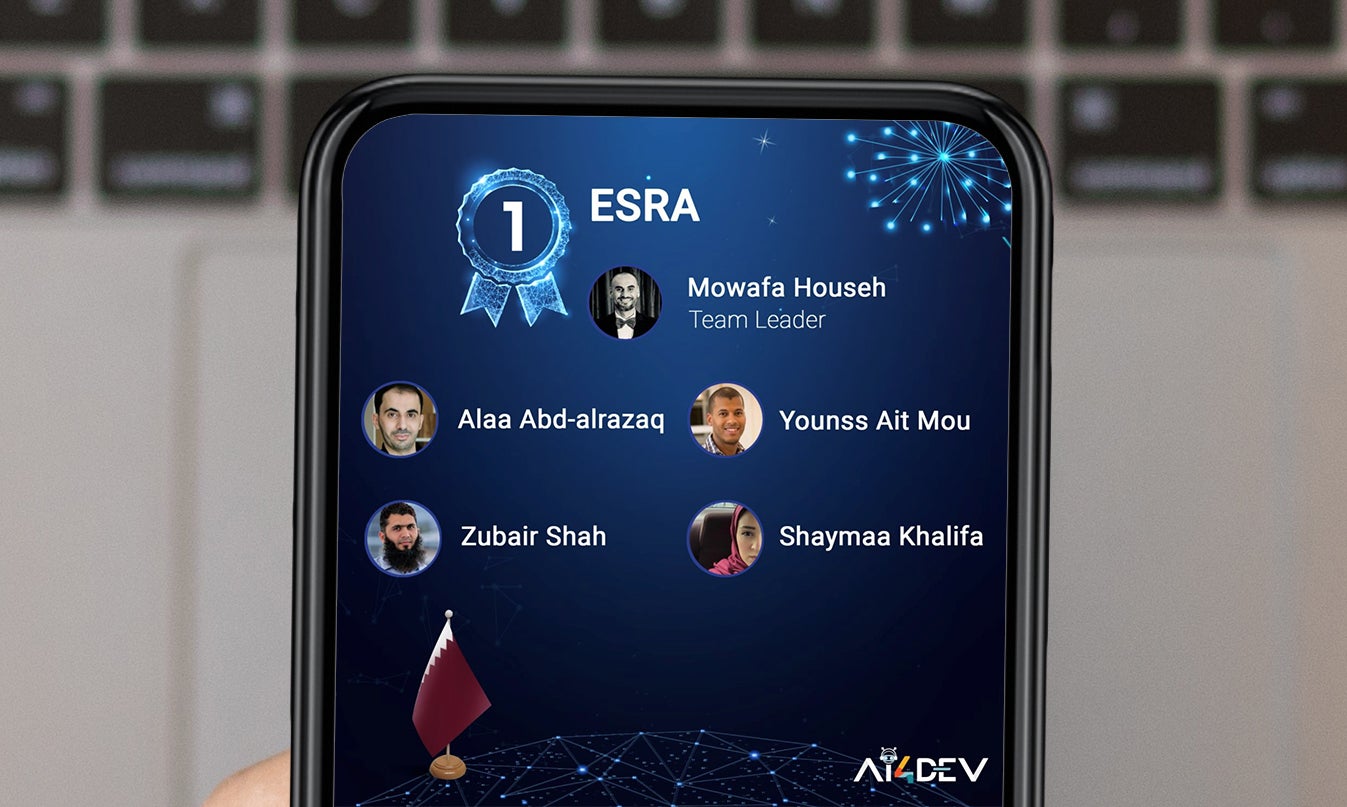
HBKU’s College of Science and Engineering Team Wins First Place in Middle East and Africa at ITU AI4Dev Challenge
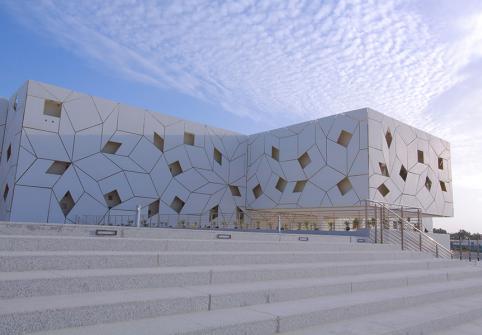
College of Science and Engineering Awarded Grant to Create a National Risk Management Plan for Qatar
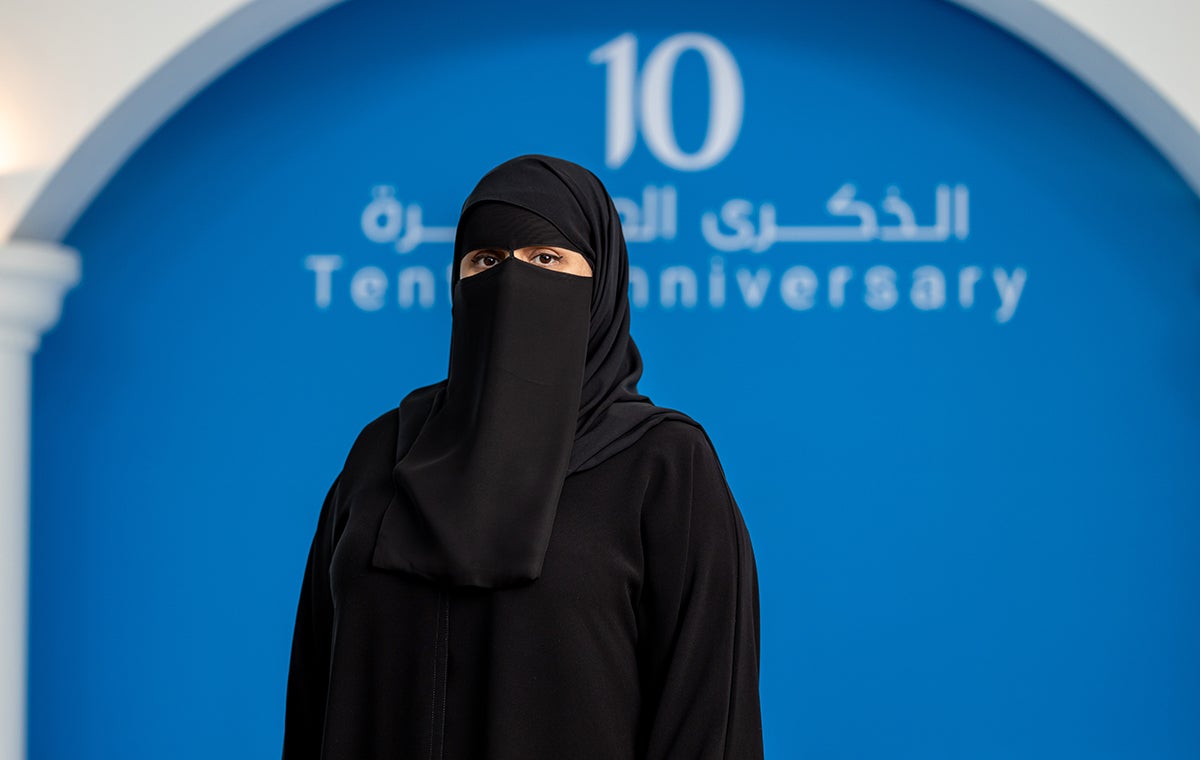
Interview with Muneera Al-Qahtani, Graduate, College of Science and Engineering, First Batch of HBKU Graduates
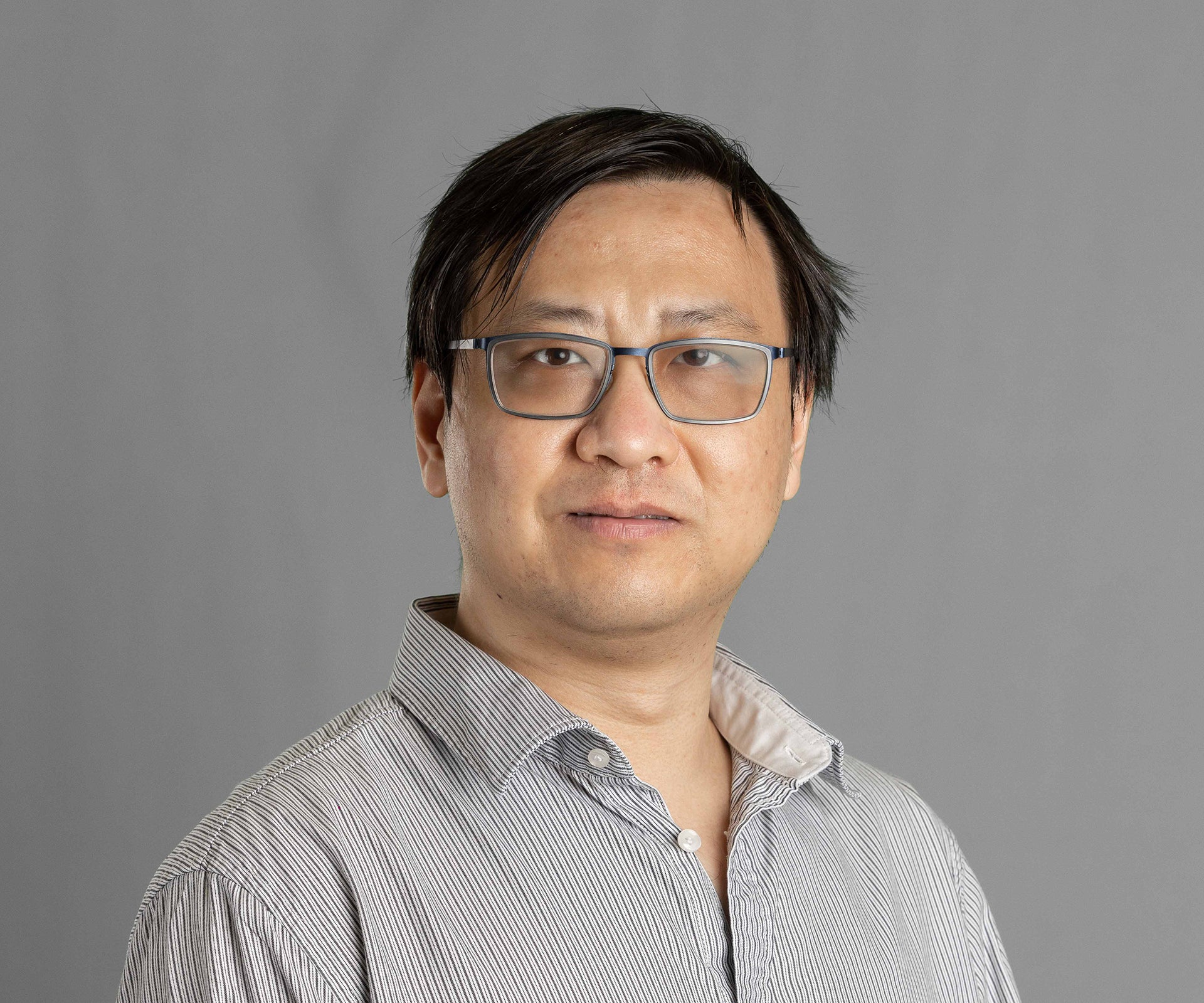
CSE Wins Best Research Paper Award at 47th International Conference on Very Large Databases
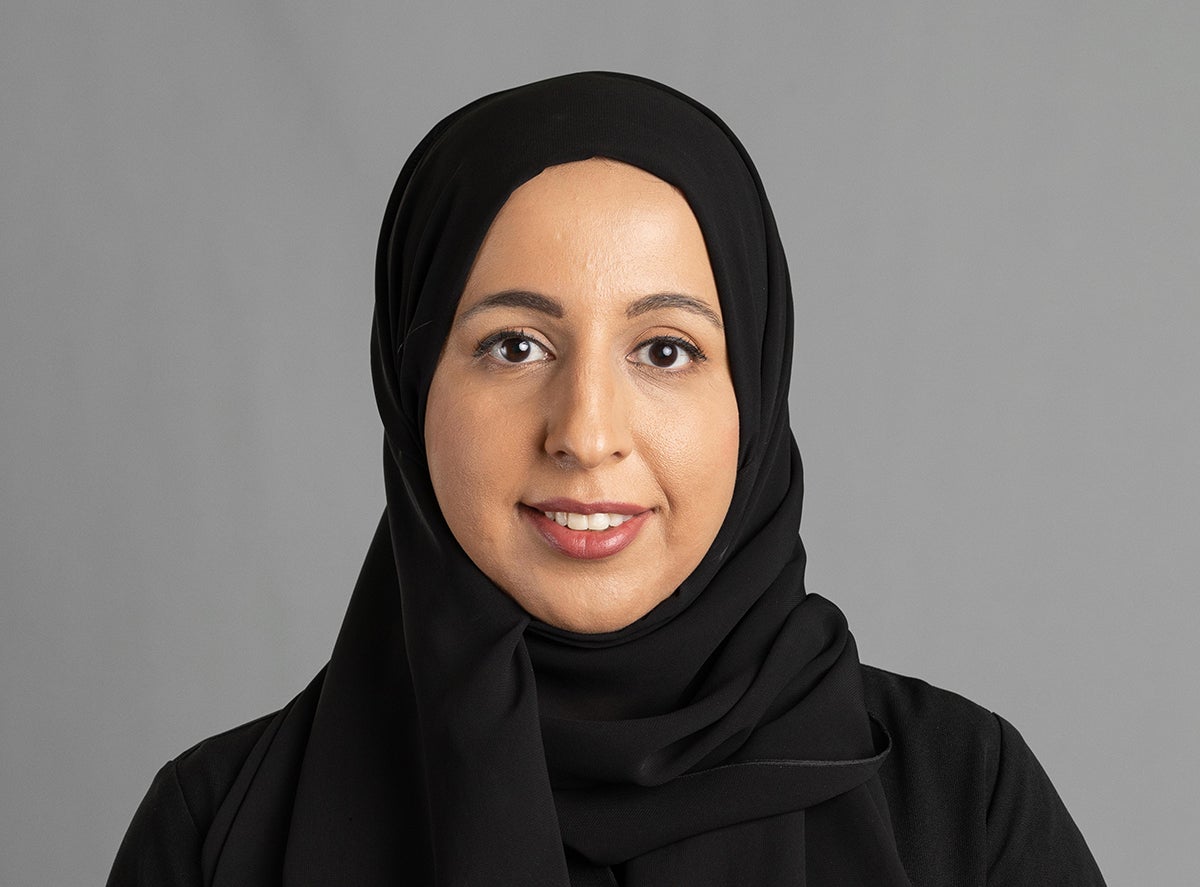
College of Science and Engineering Highlights Research on Digital Trends at International Conference on Persuasive Technologies

College of Science and Engineering Signs MoU with Hassad Food to Advance Science and Technology in Food Production

HBKU’s College of Science and Engineering Team Wins First Place in Middle East and Africa at ITU AI4Dev Challenge

College of Science and Engineering Awarded Grant to Create a National Risk Management Plan for Qatar

Interview with Muneera Al-Qahtani, Graduate, College of Science and Engineering, First Batch of HBKU Graduates

CSE Wins Best Research Paper Award at 47th International Conference on Very Large Databases

College of Science and Engineering Highlights Research on Digital Trends at International Conference on Persuasive Technologies

College of Science and Engineering Signs MoU with Hassad Food to Advance Science and Technology in Food Production

HBKU’s College of Science and Engineering Team Wins First Place in Middle East and Africa at ITU AI4Dev Challenge

College of Science and Engineering Awarded Grant to Create a National Risk Management Plan for Qatar

Interview with Muneera Al-Qahtani, Graduate, College of Science and Engineering, First Batch of HBKU Graduates

CSE Wins Best Research Paper Award at 47th International Conference on Very Large Databases

College of Science and Engineering Highlights Research on Digital Trends at International Conference on Persuasive Technologies

College of Science and Engineering Signs MoU with Hassad Food to Advance Science and Technology in Food Production

HBKU’s College of Science and Engineering Team Wins First Place in Middle East and Africa at ITU AI4Dev Challenge

College of Science and Engineering Awarded Grant to Create a National Risk Management Plan for Qatar

Interview with Muneera Al-Qahtani, Graduate, College of Science and Engineering, First Batch of HBKU Graduates

CSE Wins Best Research Paper Award at 47th International Conference on Very Large Databases

College of Science and Engineering Highlights Research on Digital Trends at International Conference on Persuasive Technologies

College of Science and Engineering Signs MoU with Hassad Food to Advance Science and Technology in Food Production

HBKU’s College of Science and Engineering Team Wins First Place in Middle East and Africa at ITU AI4Dev Challenge

College of Science and Engineering Awarded Grant to Create a National Risk Management Plan for Qatar

Interview with Muneera Al-Qahtani, Graduate, College of Science and Engineering, First Batch of HBKU Graduates

CSE Wins Best Research Paper Award at 47th International Conference on Very Large Databases

College of Science and Engineering Highlights Research on Digital Trends at International Conference on Persuasive Technologies

College of Science and Engineering Signs MoU with Hassad Food to Advance Science and Technology in Food Production

HBKU’s College of Science and Engineering Team Wins First Place in Middle East and Africa at ITU AI4Dev Challenge

College of Science and Engineering Awarded Grant to Create a National Risk Management Plan for Qatar

Interview with Muneera Al-Qahtani, Graduate, College of Science and Engineering, First Batch of HBKU Graduates

CSE Wins Best Research Paper Award at 47th International Conference on Very Large Databases

College of Science and Engineering Highlights Research on Digital Trends at International Conference on Persuasive Technologies

College of Science and Engineering Signs MoU with Hassad Food to Advance Science and Technology in Food Production

HBKU’s College of Science and Engineering Team Wins First Place in Middle East and Africa at ITU AI4Dev Challenge

College of Science and Engineering Awarded Grant to Create a National Risk Management Plan for Qatar

Interview with Muneera Al-Qahtani, Graduate, College of Science and Engineering, First Batch of HBKU Graduates

CSE Wins Best Research Paper Award at 47th International Conference on Very Large Databases

College of Science and Engineering Highlights Research on Digital Trends at International Conference on Persuasive Technologies

College of Science and Engineering Signs MoU with Hassad Food to Advance Science and Technology in Food Production

HBKU’s College of Science and Engineering Team Wins First Place in Middle East and Africa at ITU AI4Dev Challenge

College of Science and Engineering Awarded Grant to Create a National Risk Management Plan for Qatar

Interview with Muneera Al-Qahtani, Graduate, College of Science and Engineering, First Batch of HBKU Graduates

CSE Wins Best Research Paper Award at 47th International Conference on Very Large Databases

College of Science and Engineering Highlights Research on Digital Trends at International Conference on Persuasive Technologies

College of Science and Engineering Signs MoU with Hassad Food to Advance Science and Technology in Food Production

HBKU’s College of Science and Engineering Team Wins First Place in Middle East and Africa at ITU AI4Dev Challenge

College of Science and Engineering Awarded Grant to Create a National Risk Management Plan for Qatar

Interview with Muneera Al-Qahtani, Graduate, College of Science and Engineering, First Batch of HBKU Graduates

CSE Wins Best Research Paper Award at 47th International Conference on Very Large Databases

College of Science and Engineering Highlights Research on Digital Trends at International Conference on Persuasive Technologies

College of Science and Engineering Signs MoU with Hassad Food to Advance Science and Technology in Food Production

HBKU’s College of Science and Engineering Team Wins First Place in Middle East and Africa at ITU AI4Dev Challenge

College of Science and Engineering Awarded Grant to Create a National Risk Management Plan for Qatar

Interview with Muneera Al-Qahtani, Graduate, College of Science and Engineering, First Batch of HBKU Graduates

CSE Wins Best Research Paper Award at 47th International Conference on Very Large Databases

College of Science and Engineering Highlights Research on Digital Trends at International Conference on Persuasive Technologies

College of Science and Engineering Signs MoU with Hassad Food to Advance Science and Technology in Food Production

HBKU’s College of Science and Engineering Team Wins First Place in Middle East and Africa at ITU AI4Dev Challenge

College of Science and Engineering Awarded Grant to Create a National Risk Management Plan for Qatar

Interview with Muneera Al-Qahtani, Graduate, College of Science and Engineering, First Batch of HBKU Graduates

CSE Wins Best Research Paper Award at 47th International Conference on Very Large Databases

College of Science and Engineering Highlights Research on Digital Trends at International Conference on Persuasive Technologies

College of Science and Engineering Signs MoU with Hassad Food to Advance Science and Technology in Food Production

HBKU’s College of Science and Engineering Team Wins First Place in Middle East and Africa at ITU AI4Dev Challenge

College of Science and Engineering Awarded Grant to Create a National Risk Management Plan for Qatar

Interview with Muneera Al-Qahtani, Graduate, College of Science and Engineering, First Batch of HBKU Graduates

CSE Wins Best Research Paper Award at 47th International Conference on Very Large Databases

College of Science and Engineering Highlights Research on Digital Trends at International Conference on Persuasive Technologies

College of Science and Engineering Signs MoU with Hassad Food to Advance Science and Technology in Food Production

HBKU’s College of Science and Engineering Team Wins First Place in Middle East and Africa at ITU AI4Dev Challenge

College of Science and Engineering Awarded Grant to Create a National Risk Management Plan for Qatar

Interview with Muneera Al-Qahtani, Graduate, College of Science and Engineering, First Batch of HBKU Graduates

CSE Wins Best Research Paper Award at 47th International Conference on Very Large Databases

College of Science and Engineering Highlights Research on Digital Trends at International Conference on Persuasive Technologies

College of Science and Engineering Signs MoU with Hassad Food to Advance Science and Technology in Food Production

HBKU’s College of Science and Engineering Team Wins First Place in Middle East and Africa at ITU AI4Dev Challenge

College of Science and Engineering Awarded Grant to Create a National Risk Management Plan for Qatar

Interview with Muneera Al-Qahtani, Graduate, College of Science and Engineering, First Batch of HBKU Graduates

CSE Wins Best Research Paper Award at 47th International Conference on Very Large Databases

College of Science and Engineering Highlights Research on Digital Trends at International Conference on Persuasive Technologies

College of Science and Engineering Signs MoU with Hassad Food to Advance Science and Technology in Food Production

HBKU’s College of Science and Engineering Team Wins First Place in Middle East and Africa at ITU AI4Dev Challenge

College of Science and Engineering Awarded Grant to Create a National Risk Management Plan for Qatar

Interview with Muneera Al-Qahtani, Graduate, College of Science and Engineering, First Batch of HBKU Graduates

CSE Wins Best Research Paper Award at 47th International Conference on Very Large Databases

College of Science and Engineering Highlights Research on Digital Trends at International Conference on Persuasive Technologies

College of Science and Engineering Signs MoU with Hassad Food to Advance Science and Technology in Food Production

HBKU’s College of Science and Engineering Team Wins First Place in Middle East and Africa at ITU AI4Dev Challenge

College of Science and Engineering Awarded Grant to Create a National Risk Management Plan for Qatar

Interview with Muneera Al-Qahtani, Graduate, College of Science and Engineering, First Batch of HBKU Graduates

CSE Wins Best Research Paper Award at 47th International Conference on Very Large Databases

College of Science and Engineering Highlights Research on Digital Trends at International Conference on Persuasive Technologies

College of Science and Engineering Signs MoU with Hassad Food to Advance Science and Technology in Food Production

HBKU’s College of Science and Engineering Team Wins First Place in Middle East and Africa at ITU AI4Dev Challenge

College of Science and Engineering Awarded Grant to Create a National Risk Management Plan for Qatar

Interview with Muneera Al-Qahtani, Graduate, College of Science and Engineering, First Batch of HBKU Graduates

CSE Wins Best Research Paper Award at 47th International Conference on Very Large Databases

College of Science and Engineering Highlights Research on Digital Trends at International Conference on Persuasive Technologies

College of Science and Engineering Signs MoU with Hassad Food to Advance Science and Technology in Food Production

HBKU’s College of Science and Engineering Team Wins First Place in Middle East and Africa at ITU AI4Dev Challenge

College of Science and Engineering Awarded Grant to Create a National Risk Management Plan for Qatar

Interview with Muneera Al-Qahtani, Graduate, College of Science and Engineering, First Batch of HBKU Graduates

CSE Wins Best Research Paper Award at 47th International Conference on Very Large Databases

College of Science and Engineering Highlights Research on Digital Trends at International Conference on Persuasive Technologies

College of Science and Engineering Signs MoU with Hassad Food to Advance Science and Technology in Food Production

HBKU’s College of Science and Engineering Team Wins First Place in Middle East and Africa at ITU AI4Dev Challenge

College of Science and Engineering Awarded Grant to Create a National Risk Management Plan for Qatar

Interview with Muneera Al-Qahtani, Graduate, College of Science and Engineering, First Batch of HBKU Graduates

CSE Wins Best Research Paper Award at 47th International Conference on Very Large Databases

College of Science and Engineering Highlights Research on Digital Trends at International Conference on Persuasive Technologies

College of Science and Engineering Signs MoU with Hassad Food to Advance Science and Technology in Food Production

HBKU’s College of Science and Engineering Team Wins First Place in Middle East and Africa at ITU AI4Dev Challenge

College of Science and Engineering Awarded Grant to Create a National Risk Management Plan for Qatar

Interview with Muneera Al-Qahtani, Graduate, College of Science and Engineering, First Batch of HBKU Graduates

CSE Wins Best Research Paper Award at 47th International Conference on Very Large Databases

College of Science and Engineering Highlights Research on Digital Trends at International Conference on Persuasive Technologies

College of Science and Engineering Signs MoU with Hassad Food to Advance Science and Technology in Food Production

HBKU’s College of Science and Engineering Team Wins First Place in Middle East and Africa at ITU AI4Dev Challenge

College of Science and Engineering Awarded Grant to Create a National Risk Management Plan for Qatar

Interview with Muneera Al-Qahtani, Graduate, College of Science and Engineering, First Batch of HBKU Graduates

CSE Wins Best Research Paper Award at 47th International Conference on Very Large Databases

College of Science and Engineering Highlights Research on Digital Trends at International Conference on Persuasive Technologies

College of Science and Engineering Signs MoU with Hassad Food to Advance Science and Technology in Food Production

HBKU’s College of Science and Engineering Team Wins First Place in Middle East and Africa at ITU AI4Dev Challenge

College of Science and Engineering Awarded Grant to Create a National Risk Management Plan for Qatar

Interview with Muneera Al-Qahtani, Graduate, College of Science and Engineering, First Batch of HBKU Graduates

CSE Wins Best Research Paper Award at 47th International Conference on Very Large Databases

College of Science and Engineering Highlights Research on Digital Trends at International Conference on Persuasive Technologies

College of Science and Engineering Signs MoU with Hassad Food to Advance Science and Technology in Food Production

HBKU’s College of Science and Engineering Team Wins First Place in Middle East and Africa at ITU AI4Dev Challenge

College of Science and Engineering Awarded Grant to Create a National Risk Management Plan for Qatar

Interview with Muneera Al-Qahtani, Graduate, College of Science and Engineering, First Batch of HBKU Graduates

CSE Wins Best Research Paper Award at 47th International Conference on Very Large Databases

College of Science and Engineering Highlights Research on Digital Trends at International Conference on Persuasive Technologies

College of Science and Engineering Signs MoU with Hassad Food to Advance Science and Technology in Food Production

HBKU’s College of Science and Engineering Team Wins First Place in Middle East and Africa at ITU AI4Dev Challenge

College of Science and Engineering Awarded Grant to Create a National Risk Management Plan for Qatar

Interview with Muneera Al-Qahtani, Graduate, College of Science and Engineering, First Batch of HBKU Graduates

CSE Wins Best Research Paper Award at 47th International Conference on Very Large Databases

College of Science and Engineering Highlights Research on Digital Trends at International Conference on Persuasive Technologies

College of Science and Engineering Signs MoU with Hassad Food to Advance Science and Technology in Food Production

HBKU’s College of Science and Engineering Team Wins First Place in Middle East and Africa at ITU AI4Dev Challenge

College of Science and Engineering Awarded Grant to Create a National Risk Management Plan for Qatar

Interview with Muneera Al-Qahtani, Graduate, College of Science and Engineering, First Batch of HBKU Graduates

CSE Wins Best Research Paper Award at 47th International Conference on Very Large Databases

College of Science and Engineering Highlights Research on Digital Trends at International Conference on Persuasive Technologies

College of Science and Engineering Signs MoU with Hassad Food to Advance Science and Technology in Food Production

HBKU’s College of Science and Engineering Team Wins First Place in Middle East and Africa at ITU AI4Dev Challenge

College of Science and Engineering Awarded Grant to Create a National Risk Management Plan for Qatar

Interview with Muneera Al-Qahtani, Graduate, College of Science and Engineering, First Batch of HBKU Graduates

CSE Wins Best Research Paper Award at 47th International Conference on Very Large Databases

College of Science and Engineering Highlights Research on Digital Trends at International Conference on Persuasive Technologies

College of Science and Engineering Signs MoU with Hassad Food to Advance Science and Technology in Food Production

HBKU’s College of Science and Engineering Team Wins First Place in Middle East and Africa at ITU AI4Dev Challenge

College of Science and Engineering Awarded Grant to Create a National Risk Management Plan for Qatar

Interview with Muneera Al-Qahtani, Graduate, College of Science and Engineering, First Batch of HBKU Graduates

CSE Wins Best Research Paper Award at 47th International Conference on Very Large Databases

College of Science and Engineering Highlights Research on Digital Trends at International Conference on Persuasive Technologies

College of Science and Engineering Signs MoU with Hassad Food to Advance Science and Technology in Food Production

HBKU’s College of Science and Engineering Team Wins First Place in Middle East and Africa at ITU AI4Dev Challenge

College of Science and Engineering Awarded Grant to Create a National Risk Management Plan for Qatar

Interview with Muneera Al-Qahtani, Graduate, College of Science and Engineering, First Batch of HBKU Graduates

CSE Wins Best Research Paper Award at 47th International Conference on Very Large Databases

College of Science and Engineering Highlights Research on Digital Trends at International Conference on Persuasive Technologies

College of Science and Engineering Signs MoU with Hassad Food to Advance Science and Technology in Food Production

HBKU’s College of Science and Engineering Team Wins First Place in Middle East and Africa at ITU AI4Dev Challenge

College of Science and Engineering Awarded Grant to Create a National Risk Management Plan for Qatar

Interview with Muneera Al-Qahtani, Graduate, College of Science and Engineering, First Batch of HBKU Graduates

CSE Wins Best Research Paper Award at 47th International Conference on Very Large Databases

College of Science and Engineering Highlights Research on Digital Trends at International Conference on Persuasive Technologies

College of Science and Engineering Signs MoU with Hassad Food to Advance Science and Technology in Food Production

HBKU’s College of Science and Engineering Team Wins First Place in Middle East and Africa at ITU AI4Dev Challenge

College of Science and Engineering Awarded Grant to Create a National Risk Management Plan for Qatar

Interview with Muneera Al-Qahtani, Graduate, College of Science and Engineering, First Batch of HBKU Graduates

CSE Wins Best Research Paper Award at 47th International Conference on Very Large Databases

College of Science and Engineering Highlights Research on Digital Trends at International Conference on Persuasive Technologies

College of Science and Engineering Signs MoU with Hassad Food to Advance Science and Technology in Food Production

HBKU’s College of Science and Engineering Team Wins First Place in Middle East and Africa at ITU AI4Dev Challenge

College of Science and Engineering Awarded Grant to Create a National Risk Management Plan for Qatar

Interview with Muneera Al-Qahtani, Graduate, College of Science and Engineering, First Batch of HBKU Graduates

CSE Wins Best Research Paper Award at 47th International Conference on Very Large Databases

College of Science and Engineering Highlights Research on Digital Trends at International Conference on Persuasive Technologies

College of Science and Engineering Signs MoU with Hassad Food to Advance Science and Technology in Food Production

HBKU’s College of Science and Engineering Team Wins First Place in Middle East and Africa at ITU AI4Dev Challenge

College of Science and Engineering Awarded Grant to Create a National Risk Management Plan for Qatar

Interview with Muneera Al-Qahtani, Graduate, College of Science and Engineering, First Batch of HBKU Graduates

CSE Wins Best Research Paper Award at 47th International Conference on Very Large Databases

College of Science and Engineering Highlights Research on Digital Trends at International Conference on Persuasive Technologies

College of Science and Engineering Signs MoU with Hassad Food to Advance Science and Technology in Food Production

HBKU’s College of Science and Engineering Team Wins First Place in Middle East and Africa at ITU AI4Dev Challenge

College of Science and Engineering Awarded Grant to Create a National Risk Management Plan for Qatar

Interview with Muneera Al-Qahtani, Graduate, College of Science and Engineering, First Batch of HBKU Graduates

CSE Wins Best Research Paper Award at 47th International Conference on Very Large Databases

College of Science and Engineering Highlights Research on Digital Trends at International Conference on Persuasive Technologies

College of Science and Engineering Signs MoU with Hassad Food to Advance Science and Technology in Food Production

HBKU’s College of Science and Engineering Team Wins First Place in Middle East and Africa at ITU AI4Dev Challenge

College of Science and Engineering Awarded Grant to Create a National Risk Management Plan for Qatar

Interview with Muneera Al-Qahtani, Graduate, College of Science and Engineering, First Batch of HBKU Graduates

CSE Wins Best Research Paper Award at 47th International Conference on Very Large Databases

College of Science and Engineering Highlights Research on Digital Trends at International Conference on Persuasive Technologies

College of Science and Engineering Signs MoU with Hassad Food to Advance Science and Technology in Food Production

HBKU’s College of Science and Engineering Team Wins First Place in Middle East and Africa at ITU AI4Dev Challenge

College of Science and Engineering Awarded Grant to Create a National Risk Management Plan for Qatar

Interview with Muneera Al-Qahtani, Graduate, College of Science and Engineering, First Batch of HBKU Graduates

CSE Wins Best Research Paper Award at 47th International Conference on Very Large Databases

College of Science and Engineering Highlights Research on Digital Trends at International Conference on Persuasive Technologies

College of Science and Engineering Signs MoU with Hassad Food to Advance Science and Technology in Food Production

HBKU’s College of Science and Engineering Team Wins First Place in Middle East and Africa at ITU AI4Dev Challenge

College of Science and Engineering Awarded Grant to Create a National Risk Management Plan for Qatar

Interview with Muneera Al-Qahtani, Graduate, College of Science and Engineering, First Batch of HBKU Graduates

CSE Wins Best Research Paper Award at 47th International Conference on Very Large Databases

College of Science and Engineering Highlights Research on Digital Trends at International Conference on Persuasive Technologies

College of Science and Engineering Signs MoU with Hassad Food to Advance Science and Technology in Food Production

HBKU’s College of Science and Engineering Team Wins First Place in Middle East and Africa at ITU AI4Dev Challenge

College of Science and Engineering Awarded Grant to Create a National Risk Management Plan for Qatar

Interview with Muneera Al-Qahtani, Graduate, College of Science and Engineering, First Batch of HBKU Graduates

CSE Wins Best Research Paper Award at 47th International Conference on Very Large Databases

College of Science and Engineering Highlights Research on Digital Trends at International Conference on Persuasive Technologies

College of Science and Engineering Signs MoU with Hassad Food to Advance Science and Technology in Food Production

HBKU’s College of Science and Engineering Team Wins First Place in Middle East and Africa at ITU AI4Dev Challenge

College of Science and Engineering Awarded Grant to Create a National Risk Management Plan for Qatar

Interview with Muneera Al-Qahtani, Graduate, College of Science and Engineering, First Batch of HBKU Graduates

CSE Wins Best Research Paper Award at 47th International Conference on Very Large Databases

College of Science and Engineering Highlights Research on Digital Trends at International Conference on Persuasive Technologies

College of Science and Engineering Signs MoU with Hassad Food to Advance Science and Technology in Food Production

HBKU’s College of Science and Engineering Team Wins First Place in Middle East and Africa at ITU AI4Dev Challenge

College of Science and Engineering Awarded Grant to Create a National Risk Management Plan for Qatar

Interview with Muneera Al-Qahtani, Graduate, College of Science and Engineering, First Batch of HBKU Graduates

CSE Wins Best Research Paper Award at 47th International Conference on Very Large Databases

College of Science and Engineering Highlights Research on Digital Trends at International Conference on Persuasive Technologies

College of Science and Engineering Signs MoU with Hassad Food to Advance Science and Technology in Food Production

HBKU’s College of Science and Engineering Team Wins First Place in Middle East and Africa at ITU AI4Dev Challenge

College of Science and Engineering Awarded Grant to Create a National Risk Management Plan for Qatar

Interview with Muneera Al-Qahtani, Graduate, College of Science and Engineering, First Batch of HBKU Graduates

CSE Wins Best Research Paper Award at 47th International Conference on Very Large Databases

College of Science and Engineering Highlights Research on Digital Trends at International Conference on Persuasive Technologies

College of Science and Engineering Signs MoU with Hassad Food to Advance Science and Technology in Food Production







